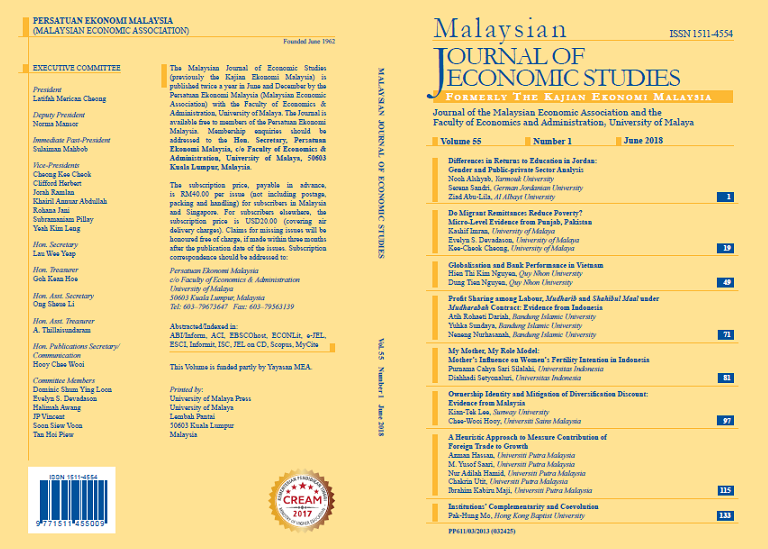My Mother, My Role Model: Mother’s Influence on Women’s Fertility Intention in Indonesia
DOI:
https://doi.org/10.22452/MJES.vol55no1.5Keywords:
Indonesia, intergenerational transmission, family size norm, fertility intention, zero-inflated PoissonAbstract
The literature shows that children born in a large family tend to adopt the same family norm as their parents. This similarity may occur because values, norms, as well as reproductive behaviours are transmitted from parents to their offspring whereby this transmission may determine the fertility rate. For Indonesia, given that the family planning program has successfully halved the fertility rate, yet for the last decade, it remains at 2.6 children per woman. Such phenomenon shows that even though most women have adopted small family norm, but a sizeable share continue to have more than two children. This study aims to examine the effect of mother’s fertility behaviour on woman’s reproductive intention. Ever-married women aged 15-49 years old in 2014 who have information about their biological mother are analysed by using data from Indonesian Family Life Survey. Zero-inflated Poisson regression model is used to estimate the transmission effect. The sample is stratified by parity. The results show that mother’s fertility is not associated with childless woman’s fertility intention, but with higher parity woman. Women with many siblings tend to have more children. This finding supports the presence of intergenerational transmission of family norm in Indonesia.







